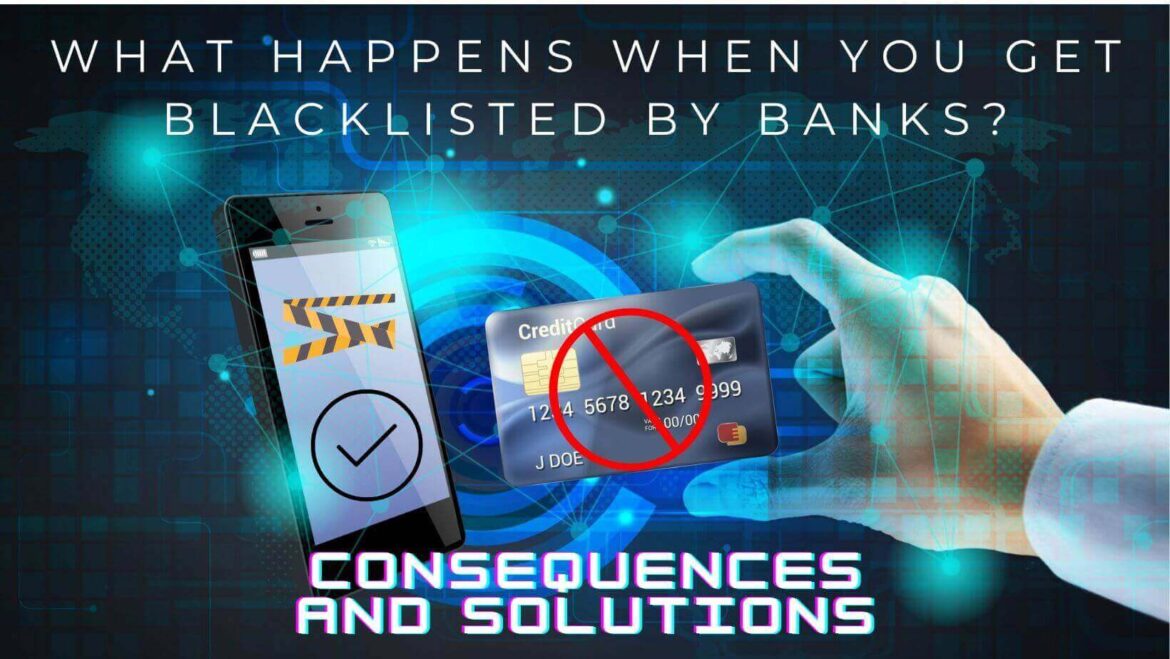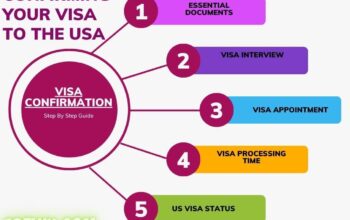What Happens When You Get Blacklisted by Banks? It means that you cannot take out any loans or credit cards from the bank. This is typically due to your outstanding debt, which includes late payments and nonpayments.
In addition, getting blocklisted can lead to other problems like being unable to rent an apartment or buy a house. Landlords and mortgage lenders will check your credit before approving you for their services.
Getting blacklisted by banks can be frustrating, but there are ways of getting back on track with your finances.
The first step is acknowledging how much money you owe – this includes all of your debts (credit card bills, student loan repayments) as well as all.
Your relationship with banks and financial institutions is critical to your financial well-being in today’s financial world. But what happens if your name is blacklisted by banks? The ramifications might be serious, affecting many facets of your life. In this comprehensive tutorial, we will investigate the repercussions of being blacklisted by banks and offer practical alternatives to help you manage this difficult position.
What does “blacklist” mean?
A blacklist is a list of individuals or groups who have defaulted on their debts after non-payments. Who can consider the effects of losing credibility and goodwill? Which negatively impacts your business and any clients linked with you?
By reputation management through this financial service disruption issue at hand—not just for yourself. But also future employers seeking out someone qualified.
Suppose they are looking internally before hiring externally again. In that case, there will always be something about “blacklisted person cannot work here anymore.”
Chances are slim, too, since businesses prefer not being associated together under these distressful circumstances where everyone could. Potentially lose everything involved, including customers, due solely to one person’s actions alone without even knowing.
How can one get out of being blacklisted?
There is no easy way to get out of being blacklisted, but there are some things you can do. The first and most important thing for any person with a bad credit history to realize is that they’re not alone.
Many others before them have gone through this same struggle. Some successfully repaired their records while others endured for years until finally receiving an offer letter from one company.
After another, as if nothing had happened (or never got employed at all). However, during those dark days when your finances seemed hopelessly lost in debt – trust me when I say we’ve been right where you’re too.
What is a bad credit history?
A bad credit history is a lack of trust in one’s ability to repay debts. It can happen because people miss payments or have gaps in their reports. This means creditors will contact the appropriate agencies tasked with calculating your score for future loans based on this information.
With a bad background, it becomes more difficult to borrow again. But if you’re lucky enough and get approved at all still might be charged higher rates.
This would cause them even more significant hardship should they need another source soon after. Make timely financial planning necessary before anything else happens!
It’s no wonder that so many people are getting blocked by banks these days. Between the housing crisis and student loans, it is hard to keep up with your responsibilities without running into financial trouble.
If you believe you are not guilty or that you are in the right, you may file a complaint against the specific bank on This Portal.
Solutions to Overcome Blacklisting
Assess Your Financial Situation
The first step in overcoming blacklisting is to assess your financial situation honestly. Create a detailed list of all your debts, outstanding payments, and financial commitments. Understanding the extent of your financial problems is crucial to finding a solution.
Communicate with Creditors
Contact your creditors and explain the issue. They may be ready to negotiate new payment terms, lower interest rates, or even cancel a portion of your debt in some situations. Communication that is open and honest can go a long way toward addressing financial concerns.
Develop a Repayment Plan
Create a repayment plan with the help of a financial expert. This plan should prioritize debt repayment and more responsible financial management. Stick to the plan religiously if you want to better your financial situation over time.
Seek Professional Help
Consider obtaining expert assistance from credit counseling agencies or debt consolidation programs if your financial situation is very dire. They can offer experienced advice and techniques to help you get back on track.
Rebuilding Your Credit
It takes time to rebuild your credit. Begin by obtaining a secured credit card, making regular payments, and maintaining a low credit utilization. Your credit score will increase with time, bringing you more financial prospects.
Monitor Your Credit Report
Regularly monitor your credit report for errors or discrepancies. Reporting inaccuracies and having them corrected can boost your credit score.
Conclusion
Bank blacklisting is a significant financial blow, but it is not the end of the road. You may overcome the effects of being blacklisted and rebuild your financial future with perseverance, a well-thought-out plan, and professional advice. Keep in mind that financial rehabilitation takes time, so stick to your goals and reclaim control of your finances.
FAQs
Q: Can I still open a bank account if I’m blacklisted by banks?
A: Yes, it is possible to open a basic bank account, but it may have limited features and services.
Q: How long does blacklisting by banks typically last?
A: The duration of blacklisting can vary, but it often lasts for several years. It depends on the severity of your financial issues and your efforts to resolve them.
Q: Will being blacklisted affect my ability to rent an apartment?
A: Yes, some landlords may check your credit history, and being blacklisted can make it harder to secure rental accommodations.
Q: Can I apply for a credit card if I’m blacklisted?
A: While it’s challenging, you may be able to obtain a secured credit card, which can help rebuild your credit over time.
Q: What should I do if I face legal action from a bank?
A: Consult with a legal professional to understand your rights and options. Consider negotiating with the bank to reach a settlement.
Q: How can I monitor my credit report?
A: You can request a free copy of your credit report from credit bureaus and use credit monitoring services for regular updates.
EXPLORE Career Opportunities in Top USA Telecommunication Companies



